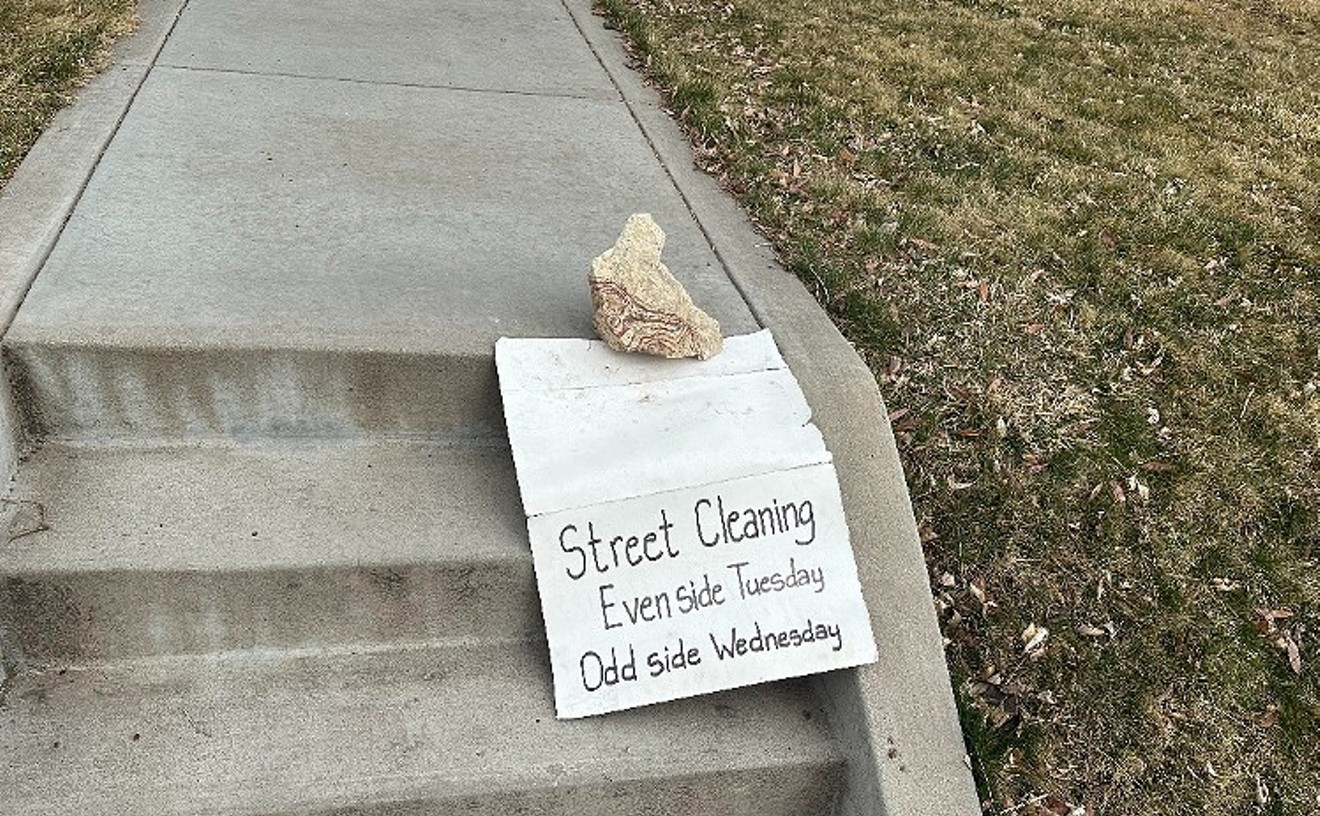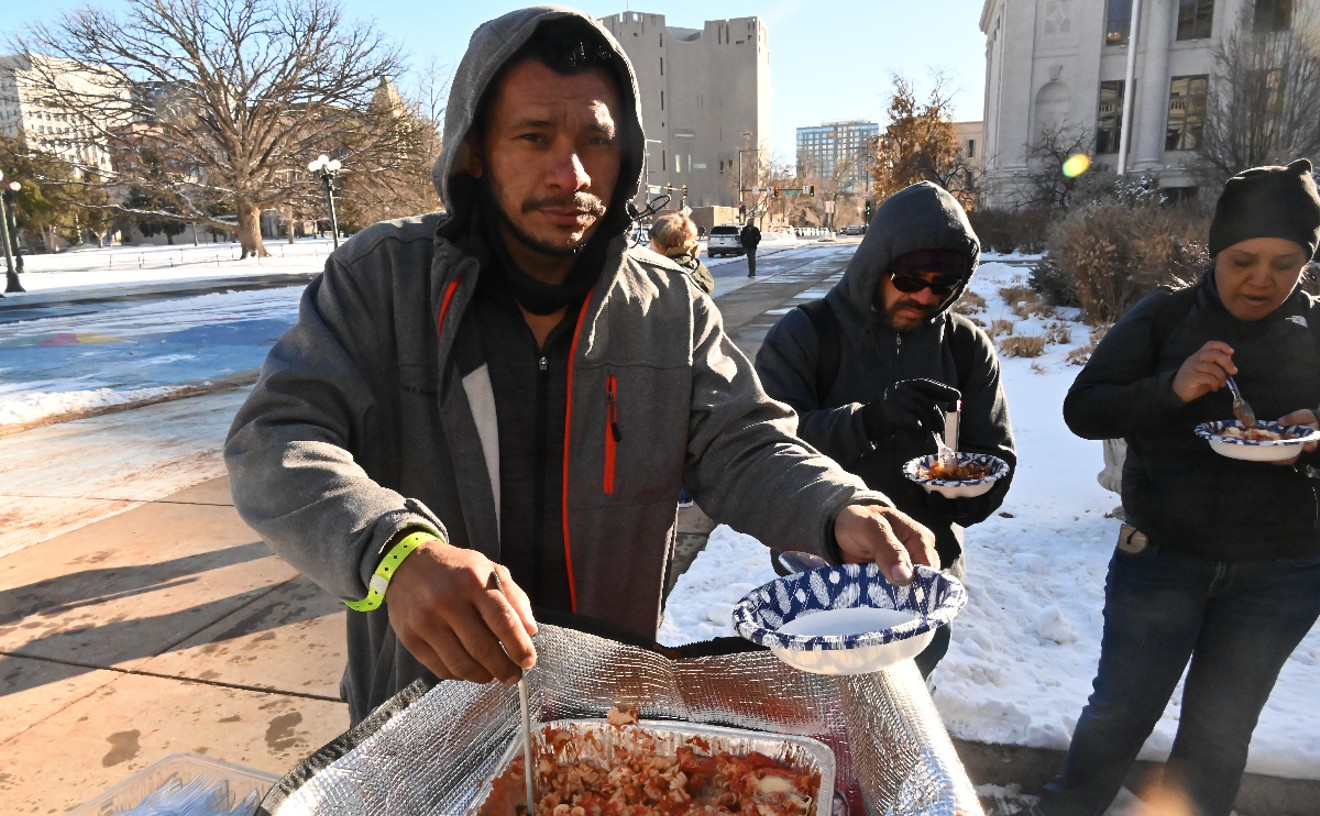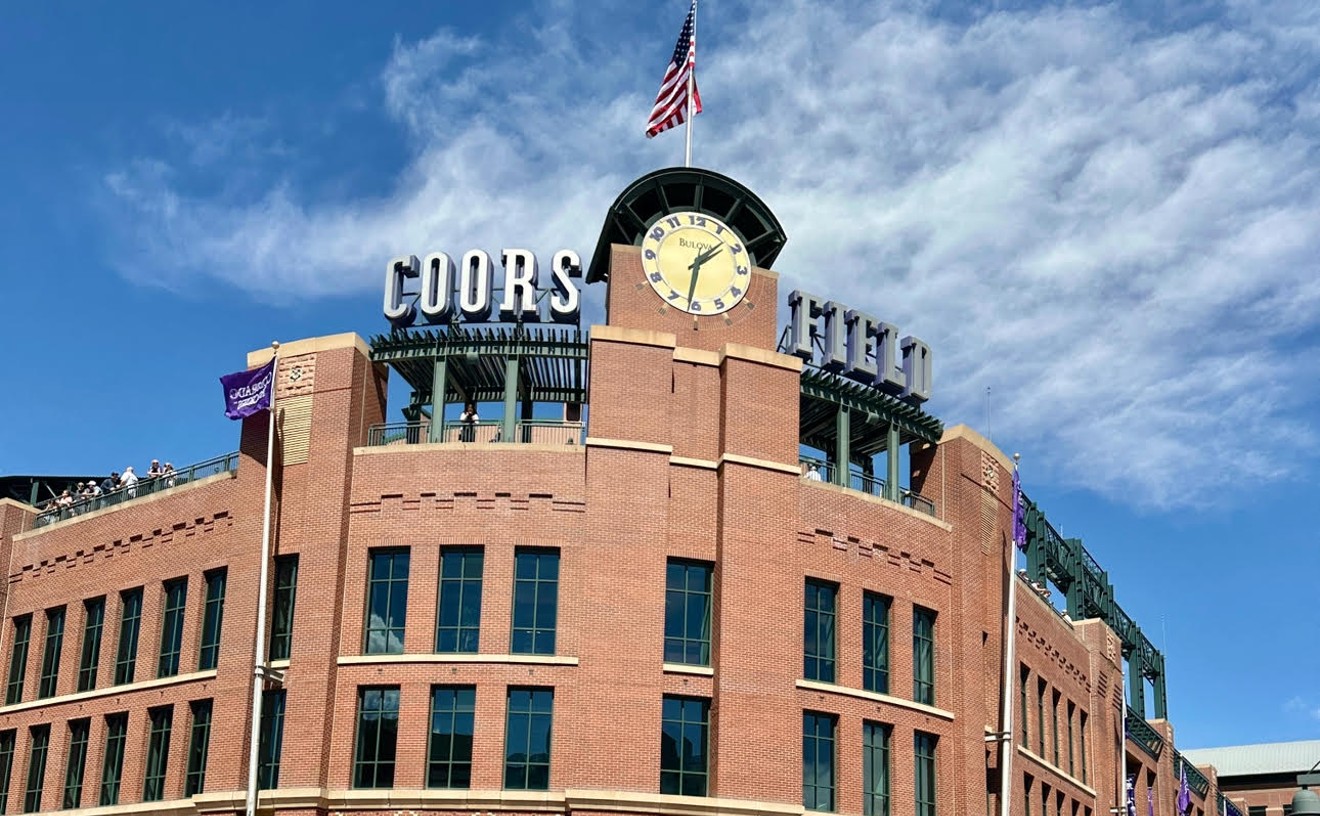"Walter Gerash for the defense, your honor."
Over the past forty years, Gerash has scored knockout after knockout in many of Colorado's most politically charged criminal cases. In a series of high-profile murder trials that have helped shape the climate of justice in the region, the 71-year-old attorney has defended a rogues' gallery of hotheads, scoundrels, psychos, martyrs and patsies--the bad, the mad and the simply had.
"What I try to do is sell the system," Gerash says. "I lecture jurors on their duty to uphold the Constitution. I point out to them that no matter how powerful the state gets, we still have these protections, what I call the Big Five. Beyond a reasonable doubt. Burden of proof. Presumption of non-guilt. Defense doesn't have to produce evidence. And the state has to disprove an affirmative defense if we offer one."
Operating out of the last Victorian residence still standing in upper downtown, Gerash prepares himself for the Constant Struggle Against State Oppression in an office packed with memorabilia. The mantel is crowded with awards, framed articles and letters, and numerous photos: Gerash and his former mentor, Melvin Belli, inspecting a fat settlement check for a client who'd lost a leg in a railroad accident; Gerash and his former nemesis, ex-District Attorney Norm Early; Gerash and John Denver.
A Bronx native, Gerash worked as a union organizer in California in the McCarthyite 1950s before coming to Denver to complete law school, searching for a "safe haven" for his left-leaning views. "Before I took the bar, I got a visit from the FBI," he recalls. "They wanted to know what I thought about China and the Soviet Union. I guess I gave the right answers."
In time, though, Gerash's responses became more querulous. In the 1960s and early 1970s he aligned himself with the young and the restless, representing anti-war and anti-nuke protesters, a mime troupe busted on obscenity charges, the Black Panthers, the Crusade for Justice and a host of other minority causes. Before the Environmental Protection Agency even existed, he took on the deadly pollution at the Rocky Mountain Arsenal, accompanied by two young lawyers named Dick Lamm and Gary Hart. Much of the work was done pro bono.
Yet it was Gerash's skill in sensational homicide cases, rather than his causes, that attracted the most attention. When heavyweight boxer Ron Lyle shot his former trainer to death in his own living room, it was Gerash who argued self-defense. When Afshin Shariati killed one teen and wounded two others who'd set out to "hassle" Iranians at the height of the 1979 hostage crisis, it was Gerash who brought tears to jurors' eyes with his insistence that a frightened Iranian had as much right to defend his "castle" from attack as any red-blooded American.
When hunky-but-hinky teen Ross Carlson executed his parents, Gerash and his co-counsel assembled a team of experts on multiple personality disorder. When ex-cop and ex-bank guard James King looked like a more-than-coincidental fit for the slaying of four United Bank employees in the 1991 "Father's Day Massacre," Gerash and former partner Scott Robinson blew holes in the crucial eyewitness identifications of King as the robber. And when Peter Schmitz stood accused of driving the BMW that killed Rocky Mountain News columnist Greg Lopez, there was Gerash, sans Robinson, pointing the finger at deceased trustafarian Spicer Breeden, whose subliterate suicide note had pointed the finger at Schmitz in the first place.
Lyle, Shariati, King and Schmitz all walked out of the courtroom as free men. Carlson's trial was delayed for six years while the doctors argued over his mental state, until he finally died of leukemia. It's a remarkable record: In his entire career, Gerash has lost only two clients to life sentences. But he's still not satisfied. The case of Peggy Saiz, who was sentenced to life for murdering her husband, despite Gerash's attempt to portray her as a battered woman, still rankles.
"The great victory is that in all the murder cases I've handled, I've never lost anybody to the death penalty," Gerash says. "But Saiz--that was my only substantial loss. It's hard for me to accept it. I made my best closing argument and I lost." He recently filed another appeal in the case.
In court, Gerash is more of a bulldog than a dazzler. Which is not to say he hasn't had his share of fireworks; he once discredited a key prosecution witness by coaxing him into demonstrating his skills with a nunchaku as well as his ability to foam blood at the mouth at will. But television junkies accustomed to Matlockian theatrics fail to appreciate that the fate of the accused often hangs on decisions made before the first witness takes the stand. Jury selection is paramount, and no one packs a jury box better than the great Gerash.
A jury trial, in Gerash's view, is a "highly ritualistic morality play," and he is relentless in his quest to fill the box with an audience that shares a rapport with him and feels empathy for his client. In 1959 he extracted a landmark decision from the Colorado Supreme Court halting the systematic exclusion of Spanish-surnamed citizens from jury duty; years later, in a second landmark case before the U.S. Supreme Court, he won a decision that further expanded the selection process. It's all part of finding the right audience--and the right "theme"--for the defense at hand.
"The ideal juror depends on the case," Gerash says. "But you can't insult the jury; you have to come up with a defense they can run with. Self-defense. Heat of passion. You're obviously stuck with your client, with his or her personality. And the facts. Really, the facts ultimately decide the case, no matter how great the lawyer is."
Sometimes it's the absence of facts--such as the prosecution's inability to produce any physical evidence tying Jim King to the United Bank murders--that matters. But Gerash's job has gotten tougher over the years; he's understandably troubled by the shift to take power away from jurors--by, for example, having death-penalty rulings handed down by a panel of judges. In addition, juries are more conservative now, he says, "brainwashed since the Reagan era toward law and order," and judges are more impatient with his efforts to ferret out potential jurors' underlying biases.
"I now get a minute and a half or two minutes per juror, which is not enough time for me to say hello," he notes. "That really hurts."
As popular as he might be in the jury room, Gerash is no longer the media darling he once was. He tangled frequently with local reporters over the King case, denouncing the "smear campaign" against his client (which included a totally erroneous report in the News that King was the brother of two well-known hoodlums). When he defended Schmitz after attending funeral services for the gifted Lopez and stating that he wouldn't represent the culprit, his picture disappeared from the walls of the Denver Press Club.
Gerash's defense of himself is simple: Schmitz wasn't driving the car. As for King, Gerash has since collaborated with historian Phil Goodstein on a book setting forth his own version of the case, the just-published Murders in the Bank Vault. King himself remains a cipher; Gerash did not allow Goodstein to interview his client, who could still face federal charges in the case.
Aired live on Court TV, the King case introduced Gerash to a national audience. He keeps two framed mementos from the case on his mantel to remind him of the public's fickleness: a fan letter from a ten-year-old girl ("You're a very good lawyer so please don't retire") and an anonymous screed from the other camp ("Well you fucking Jew now that you've got all the stolen money you can take a vacation. Both your number is coming up you can bet on that").
The state's premier criminal lawyer is too busy to worry about what his critics think of him. Retirement is not in his vocabulary. "I like where the action is," he says. "I like the struggle. I went down to ten cases two years ago. All of a sudden I've got sixty--mostly civil. (And one fresh murder case. Last week Gerash picked up a new client, James Garner, arrested by Douglas County authorities as the sole suspect in the slaying of his wife and her parents.)
Gerash talks about taking time off to travel and write poetry, to crank out a book on "the social struggle in this community in the last forty years," but right now he has clients waiting. Expect him back in the courtroom soon, selling the system, the Big Five, the presumption of non-guilt. Not innocence, mind you, but non-guilt.
"No one is innocent," he says.
He'll settle for not guilty.











